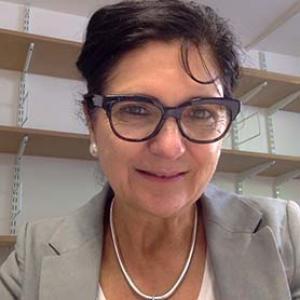Decarbonized visions of human development in Latin America
My research activities in 2023 and 2024 have continued to explore the dynamic interplay between green transitions ‘from above’ and transformational struggles ‘from below.’ Together, they promise to rein back planetary environmental degradation and to temper the acceleration of climate change (Rival 2022, 2021, 2019).
Are Latin American states being ‘greened’ and to what effect?
Along with research collaborator Roger Merino (Universidad del Pacifico, Peru), MPhil student Josefina Lehnen (ODID 2022-2024), and colleague Antonio Ioris (Cardiff University), I have focused on documenting empirically policies aimed at ‘greening the state’ in Ecuador, Peru, and Brazil. This work is helping us understand better how grassroots social movements are responding to dominant policy discourses fixated on tackling the climate crisis by delinking economic growth from decarbonization.
A joint publication is in preparation.
Ecuador’s post-oil transition and the future of the Yasuní
Environmental degradation under the form of air pollution, water contamination and scarcity, arable soil loss, and natural resource depletion disproportionately affects vulnerable people, poor communities and developing regions. We must find ways of achieving prosperity and human flourishing within the Earth’s biophysical limits while fully addressing the special developmental needs of regions and communities affected by all types of deprivation and suffering, as well as structural inequality and material and distributive injustices at many scales. Basing themselves on mounting scientific evidence, Ecuador’s government officials and social movement activists are convinced that the climate and biodiversity crises demand that we drastically rethink the burning issues of development everywhere.
National political culture in Ecuador, which has grown out of multi-faceted politics of recognition since the end of dictatorship, has evolved into a commitment to ‘visions of beauty, knowledge and national wealth’ (sumac kausay). Contemporary Ecuadorian political culture thus transcends what methodological nationalism and other modernist normative framings say about shared society and social cohesion. Citizens of a ‘plurinational’ nation-state debate (sometimes fiercely) the different versions of the good life (Buen Vivir in Spanish) they collectively aspire to. Their open-ended ideal of good life is not for a distant ‘better future’, but for the here and the now in full respect of Pacha Mama (2015e).
This I discovered and comprehended more fully when asked in 2007 to join the technical team formed by the first Correa government. The aim was to develop the Yasuní Initiative. With the victory in August 2023 of the campaign to stop oil extraction in the Yasuní National Park (almost 60% of the Ecuadorians who voted in the referendum said Yes to leaving oil in the ground), Ecuador is showing the world that countries in the Global South do have a choice when it comes to moving towards deep decarbonization; and that this choice can be exercised democratically. In 2022, I was called as an Expert Witness in the ‘Tagaeri and Taromenane vs Ecuador Court Case’ at the InterAmerican Court of Human Rights, and in 2025 the IACHR decided in favour of the Tagaeri and Taromenane peoples in a landmark decision for Indigenous rights (see details here).
A year on from referendum victory, oil companies are lobbying the state to delay the application of the popular decision with a ten-year moratorium. The social movements are again taking the lead. I was invited by the NAWE (Waorani Nation of the Ecuadorian Amazon) to participate in a three-day international forum for the future of the Yasuní and its peoples (https://cumbreyasuni.nawe.org.ec). I was also interviewed for the 6th Bulletin of Ecos delYasuní (see https://naturalezaconderechos.org/, 31-08-2024).
Various publications are in preparation relating to this unique case of greening the state from above and from below.
Electrification and climate justice
Development studies scholars are divided between those who advocate delaying green transformation and those who support policies promoting early greening strategies above retaining employment and competitiveness in polluting industries. Technological innovation and international trade are at the heart of development studies, yet the roles they play in both inducing and possibly remediating climate change have not received sufficient empirical attention, especially from the perspective of rural and urban communities at the periphery in the ‘Global South’.
In response to these theoretical challenges and key debates, I am developing a collaborative project on the rolling out of microgrids in various low-income communities, including in the Amazon with colleagues at the Paulista Centre for Studies on Energy Transition (CPTEn) at UNICAMP (in the Brazilian state of São Paulo). See ODID Climate and Development webinar ‘Progress towards a fair energy transition in Amazonia’, 17 May 2024.
This project, designed collaboratively with Indigenous students at UNICAMP, aims to foster implementation policies that promote inclusive and Indigenous innovation while pursuing domestic and transnational clean energy goals throughout the Amazon basin.
We are working on a funding application to continue this collaborative action-research project, which overlaps with some of the themes developed below in Research Axis 2.


